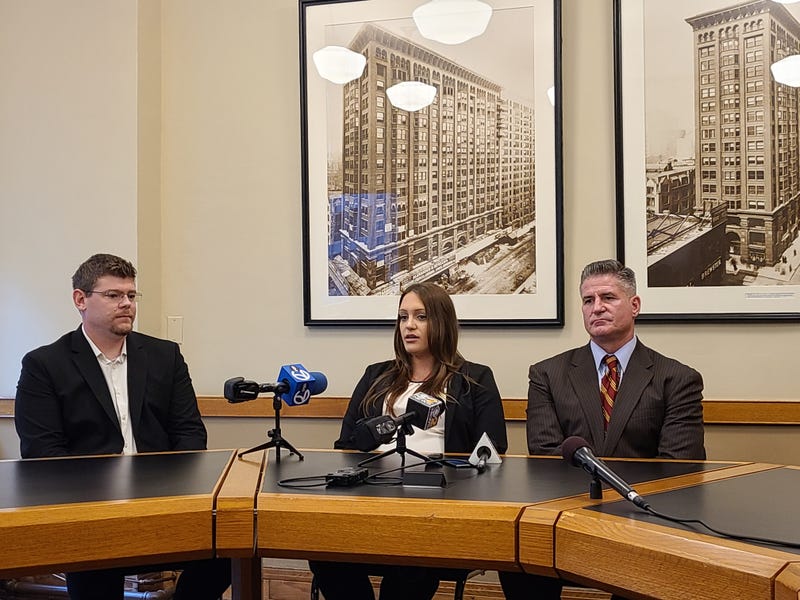
CHICAGO (WBBM NEWSRADIO) — Shortly before 5 a.m. on July 26, 2018, Lakemoor Police Officer Brianna Tedesco was attempting to identify a man who appeared to be asleep in his SUV on a gravel road.
The man, who originally provided a fake name, acted like he was reaching for a form of ID, but instead he drew a gun and put it to Tedesco’s head. They struggled for control of the weapon until Tedesco’s backup arrived and shot the man, who was wanted for murder in Pennsylvania.
One year after her violent struggle with the wanted murderer, Tedesco was fired from the Lakemoor Police Department. Now, she’s suing the village.
“The Village of Lakemoor decided to treat my client like a piece of equipment as opposed to a human being,” said Dan Herbert, Tedesco’s attorney.
In a five-count federal lawsuit against the village and its police chief, Tedesco alleged that she was illegally fired from the department while she was recovering from PTSD developed from that 2018 incident, for which she had been hailed as a hero.
“My goal was to return to active patrol, and I did my best to do that, but I did realize on the street that I was faced with a lot of triggers,” Tedesco. “I needed further mental health treatment.”
Tedesco announced the lawsuit Thursday morning, and she told WBBM about what makes her proudest when she looks back on her time with the force.
“I would say those thank-you cards,” Tedesco said. “I’ve touched a lot of people, and I was able to make them — if you look through them, they say, ‘Thank you. I can sleep at night knowing that you’re on the street,’ and you become a police officer to help people and make them feel safe. I think that’s what I did.”

Tedesco, who’s open about her struggle, also alleged retaliation from other officers within the department, which she added was part of a culture that stigmatized mental health concerns.
"[They] started telling her, you know, 'You gotta get over this, you gotta suck it up. Pull up your big-girl panties. You gotta deal with this,'" Herbert said.
The suit claims that Tedesco wasn’t offered reasonable accommodations, such as allowing her to work with a partner or even doing work inside the station.
“There was a period in time where I tried to return to work,” she said. “When I realized my struggles, we requested light duty then.”
She said monetary compensation is secondary in her suit, that she more wants to send a message to law enforcement agencies that they must better address officers struggling with their mental health.
“The fear shouldn’t be of a lawsuit for these departments,” she said. “It should be their officers struggling with mental health and the suicide rate among first responders.”
Listen to WBBM Newsradio now on Audacy!


